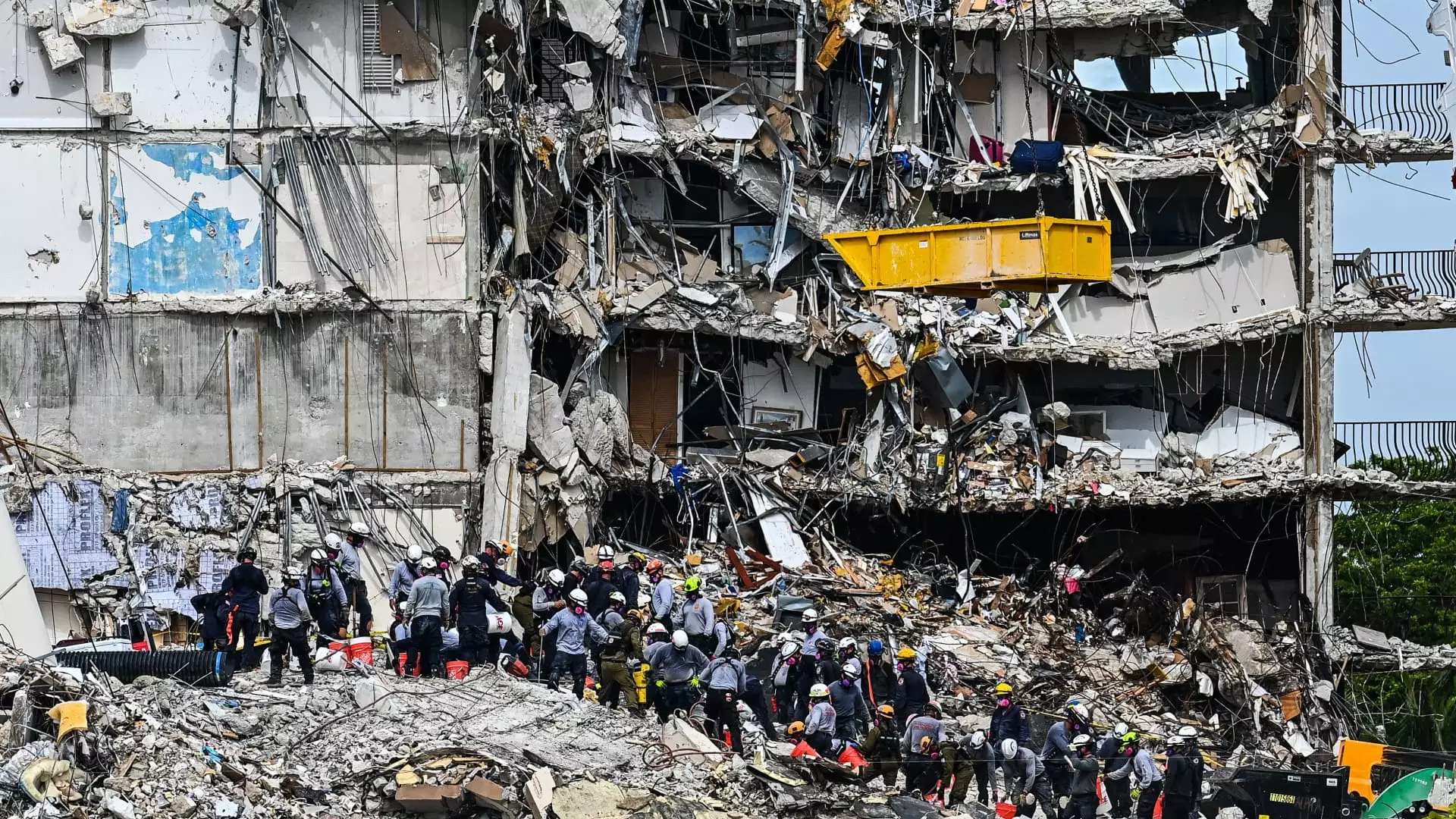The tragic collapse of the Champlain Towers South in Surfside, Florida, in June 2021, not only claimed lives but also sent shockwaves throughout the local real estate landscape and prompted a substantial legislative response. In the wake of such devastation, Florida state lawmakers implemented stringent regulations aimed at enhancing safety and accountability in condominium associations. These measures have brought to light a profound financial reckoning for many condominium owners, particularly those in units older than 30 years. As the impending deadlines for compliance approach, the ramifications of these regulations are becoming increasingly apparent and raise complex questions about the future of condominium living in the Sunshine State.
In the aftermath of the Surfside collapse, a comprehensive set of requirements was introduced for older condominium structures, compelling them to undergo thorough inspections and repair mandates. The goal was to prevent similar disasters and restore faith in the safety of aging buildings. However, these new regulations have translated into significant financial burdens for many owners, particularly retirees living on fixed incomes. With an estimated one million units affected by these legal changes, associations are now grappling with substantial costs related to repairs and compliance.
The financial implications of this legislation cannot be overstated. With special assessments hitting as high as $200,000 per unit, many owners find themselves caught in a precarious situation—facing mounting bills they may not be able to afford. This piquant blend of urgency and financial strain has led to a crisis described by industry experts as the “condominium cliff,” where financially-weighted decisions will be forced upon homeowners en masse.
As the financial realities set in, the South Florida condominium market is witnessing a significant shift. Data indicates a 21.5% decline in sales year-over-year during the typically bustling summer season, highlighting growing apprehension among buyers. Many potential purchasers are wary of new acquisitions that may become entwined in expensive assessments and repairs shortly after closing. This atmosphere of uncertainty has contributed to rising active listings, which soared by 60% in the third quarter, creating a buyer’s market shadowed by distress.
Further compounding the situation is the substantial drop in average condo prices, which fell by 2.4%. This decline can be attributed to a narrowed pool of buyers, many of whom face the daunting task of either absorbing the new costs or drastically lowering their purchase offers. Real estate experts warn that without significant financial incentives or reassurance from state leaders, this trend is likely to deepen.
The Role of Investors
In light of these challenges, some condominium associations are seeking relief through alternative means, such as attracting investors who can potentially alleviate financial pressure. For instance, the Bay Garden Manor condo on West Avenue in Miami has reportedly caught the eye of an investor interested in redevelopment. This not only offers a potential financial lifeline for the current owners but also initiates a trend of transforming aging properties into lucrative investment opportunities.
As investors target well-located buildings for demolition and redevelopment into luxury properties, the specter of foreclosures and short sales looms large. Real estate professionals recognize that while some owners may be inclined to sell under duress, others may be banking on the prospect of investor intervention to escape the mounting tide of expenses.
Plans for Legislative Revisions
Despite the clarity demanded by various stakeholders, Florida’s legislative leaders have opted to postpone any potential revisions to the existing condo laws until early 2025. This cautious approach underscores the need for a comprehensive assessment of the financial reality facing condominium associations, highlighting the delicate balance between immediate needs and long-term legislative solutions.
As urgent discussions about these laws unfold, the question remains: how will the state address the complexities of condominium governance and safety without overburdening owners already grappling with financial uncertainty?
The aftermath of the Surfside tragedy reverberates far and wide, reshaping not only the regulations governing condominiums in Florida but also the very fabric of community living. With mandates for inspections and repairs now a reality, many condo owners face an uncertain future laden with financial burdens. The market’s response—characterized by declining sales, fewer buyers, and a burgeoning list of unsold units—paints a grim picture of the challenges ahead.
As Florida navigates through this crisis, the essential question will be how to strike a balance between preserving safety and affordability, ensuring that homeownership remains a viable pathway for all, particularly the vulnerable populations that depend on these condominium environments for their daily lives. The unfolding saga of these aging towers serves as a reminder of the profound importance of community safety, the interconnectedness of homeowners, and the pressing need for responsive legislative action.


Leave a Reply